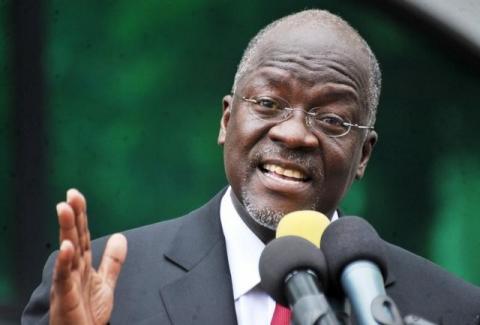Advertisement
Tanzania's President Magufuli says plans tighter mining laws
DAR ES SALAAM (Reuters) - Tanzania plans to further tighten controls on its mining sector to ensure that the country maximises the benefits from its wealth of natural resources, President John Magufuli said on Friday.
Africa's fourth-largest gold producer also has vast deposits of natural gas, coal, diamonds, uranium and gemstones.
"Tanzania has a lot of minerals, but there have been a lot of funny deals ... we have to look carefully at our laws so that we move forward as a country," Magufuli told a news conference at State House in the country's commercial capital, Dar es Salaam.
Magufuli said his government recently approved new mining regulations aimed at ensuring that the benefits of the mining sector are shared more equitably between multinational mining companies and the state.
Since coming to power in 2015, Magufuli has promised to root out tax evasion, corruption and mismanagement.
"Some of the gold mines even have airstrips - how do you monitor what those planes are carrying from the gold mines? ... our country should not continue to be robbed."
Gold exports alone earned Tanzania $1.27 billion in 2015, down from $1.32 billion the previous year, largely due to a fall in global commodity prices and output.
Major gold mining companies in Tanzania include Acacia Mining Plc (previously known as African Barrick Gold), which has three gold-producing mines, and AngloGold Ashanti Ltd.
Magufuli said some mining companies export mineral sand for smelting abroad and said the country must build its own gold smelters to stop such exports.
Tanzania passed a mining law in 2010 that increased the royalty paid on minerals like gold from 3 percent to 4 percent and required the government to own a stake in future mining projects.
The Mining Act also requires mining firms to list on the Dar es Salaam Stock Exchange (DSE) and in September the government approved regulations to enforce that law.
All mining firms operating in Tanzania now must list on the stock exchange not later than two years after the approval of the new regulations.
The new rules also require a holder of a special mining licence to have a minimum of 30 percent local ownership of all paid up shares.
(Editing by Elias Biryabarema and Elaine Hardcastle)



















Add new comment